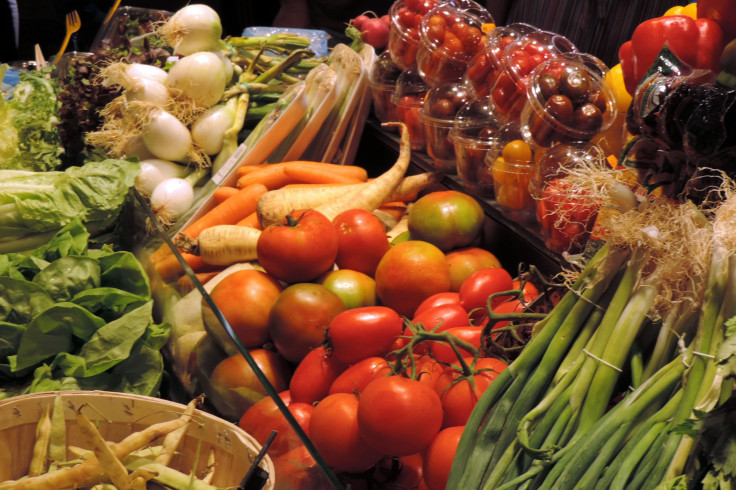Being A Veggie Hater Could Be Genetic

Which American kid doesn't hate bitter veggies? In this day and age of vegans and vegetarians, that number is bound to be fewer than it was, say, in the 20th century. But loving to eat veggies seems to be more of a gene than an acquired trait, and new research seems to prove this point.
People that don't like the taste of vegetables are called "super-tasters" by scientists. This polite term refers to a person that's genetically predisposed to taste food — especially vegetables — differently. To a super-taster, vegetables generally taste bitter, which is why they'll have none of it.
Scientists point out super-tasters are very sensitive to bitterness. The basic taste of bitterness is a common characteristic of many dark green, leafy vegetables such as the cruciferous vegetables that include broccoli, Brussels sprouts, cabbage, radishes, kale, bok choy, watercress, collards and arugula.
Despite their bitterness, cruciferous veggies are chock-full of fiber, are low in calories and are full of nutrients. They ooze with vitamins A and C and phytonutrients, which are compounds that could help to lower inflammation.
Research has found people born with the "bitter gene" are 2.6 times more likely to eat fewer vegetables than people who don't have this gene, according to a new study presented Monday at the annual meeting of the American Heart Association (AHA).
"The person who has that genetic propensity gets more of the sulfur flavor of, say, Brussels sprouts, especially if they've been overcooked," Valerie Duffy, a University of Connecticut professor and an expert in the study of food taste, preference and consumption, said.
"So that (bitter) vegetable is disliked, and because people generalize, soon all vegetables are disliked," Duffy added. "If you ask people, 'Do you like vegetables?' They don't usually say, 'Oh yeah, I don't like this, but I like these others.' People tend to either like vegetables or not."
Study author Jennifer Smith, a registered nurse and a postdoc in cardiovascular science at the University of Kentucky School of Medicine, said the research team wanted to know if genetics affected the ability of people who need to eat heart-healthy foods from eating them.
"While we didn't see results in gene type for sodium, sugar or saturated fat, we did see a difference in vegetables," Smith said. She pointed out people with the bitter gene tasted "a 'ruin-your-day' level of bitterness."
We can taste because receptors on our taste buds respond to five basic flavors: salty, sweet, sour, bitter and umami, which is the taste of MSG or monsodium glutamate. There are more than 25 different taste receptors in our mouth.
According to Duffy, taste also has to do with smelling through the mouth and the touch, texture and temperature of the food.
"It's very difficult to separate out taste from the rest. So when any of us say the food tastes good, it's a composite sensation that we're reacting to."
Published by Medicaldaily.com



























